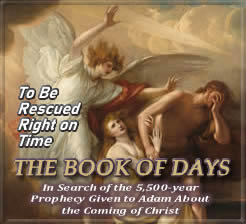The Quest for an Antidote
Because False Hope is So Easy to Embrace and Real Hope is So Hard to Come By
At its most basic level, the kind of cynicism we’ll be speaking of here concerns the age-old tendency where it’s so easy to view things like God or truth or justice as the stuff that only fools or con artists profess to believe in. In contrast to the simplicity of doubt and skepticism, there is the incredible difficulty of negotiating real faith or real hope.In contrast to the simplicity of doubt and skepticism, there is the incredible difficulty of negotiating real faith or real hope.
The reasons for such cynicism are varied and complex, but essentially—and this is the main thrust of this work—it isn’t because people outright reject or deny the existence of God or truth or justice, as one might assume. Instead, the main reason for cynicism is due to an overwhelming belief in God or truth or justice. Unfortunately, though, because that belief in the reality of such things is so often disappointed due to the presence of evil in the world, the inevitable response is despair that in turn creates the perfect recipe for cynicism. What’s worse, the great irony of modern life is, especially in the wake of Western progress, democracy, and technology is, the greater the level of our hope, the deeper is the level of our collective cynicism.
Story Continues Below
Listen to Richard Price—the founder and CEO of Academia.edu—on his podcast In Depth With Academia, as he talks about…
Conquering Cynicism in a Modern Age: How The Bible in Nature Provides an Antidote to Doubt and Despair
“Compelling… A paradigm shift… A fresh lens on reality…”
To hear Price’s book review of Conquering Cynicism in a Modern Age, CLICK HERE.
To hear Kent talk about the little-known biblical prophecy, which speaks of the 5,500-year chronology from Adam to Christ, with Zen Garcia, the host of the Internet talk show Secrets Revealed, CLICK BELOW.
Story Continues From Above
That said, Conquering Cynicism in a Modern Age traces the history of humanity’s attitude toward God and the world, marred as it is by the presence of evil, particularly in terms of what is communicated about such things in the biblical record. That’s because, although cynicism, as a by-product of hope disappointed, has reached epidemic levels in today’s world, it is by no means strictly a modern condition. In fact, it’s as old as the most ancient dramas depicted in The Bible. As a result, what begins as a straightforward discussion of the causes of cynicism in a modern world soon takes an unexpected turn as we journey forward through time, age after age, in a quest for an antidote to the most corrosive force in God’s creation.







